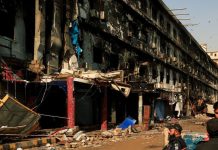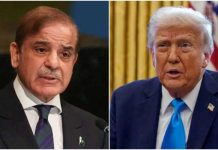MUSCAT: Oman has facilitated the release of 14 foreigners who were held in Yemen and transferred them from the Houthi-controlled Yemeni capital Sanaa to Muscat, Oman’s foreign ministry said.
The people freed included a British man, his wife and child, seven Indian nationals, a Filipino, an Indonesian, an Ethiopian and a Myanmar national, the ministry added on Sunday, without giving details of what had led to their detention.
The British government identified the Briton as Luke Symons, saying he had been held without charge or trial since 2017.
“Luke was 25 when he was unlawfully detained by the Houthis. His son was only a few months old at the time,” Foreign Secretary Liz Truss said in a statement. “He was allegedly mistreated, in solitary confinement, and refused visits by his family,” Truss said. –Agencies
Amnesty International said in February that Symons travelled to Yemen in 2012 where he met and married his Yemeni wife. It said he had been accused by the Houthis, de facto authorities in North Yemen, of spying for the British government though he was not formally charged with any crime.
Houthi chief negotiator Mohammed Abdulsalam said on Twitter that the 14 were released after mediation by Oman but made no mention of the reasons or conditions of the detentions.
Oman’s foreign ministry said that after communicating with Saudi Arabia to facilitate the issuance of the necessary permits, all 14 people were transferred on an Oman Royal Air Force plane to the Omani capital on Sunday, in preparation for their return to their countries.
A Saudi-led coalition controls Yemen’s sea and air space. Oman is not a member of the coalition.
Earlier this month, the warring sides in Yemen’s seven-year conflict agreed to a nationwide truce for the first time in years, under a United Nations-brokered deal.
The 60-day truce, which went into effect on April 2, came amid concerted international and regional efforts to find a settlement to the conflict that has devastated the Arab world’s poorest country and pushed it to the brink of famine.
While the Saudi-led coalition air strikes and cross-border Houthi attacks on Saudi Arabia have stopped, fighting in some parts of the country, such as in the city of Marib, continues.
The coalition launched a war in early 2015 in support of the internationally-recognised President Abd-Rabbu Mansour Hadi, who was forced into exile months after the Iranian-backed Houthis seized Sanaa and much of northern Yemen.
In recent years, the conflict has become a regional proxy war that has left more than 150,000 people dead, including at least 14,500 civilians. It has also created one of the worst humanitarian crises in the world.



